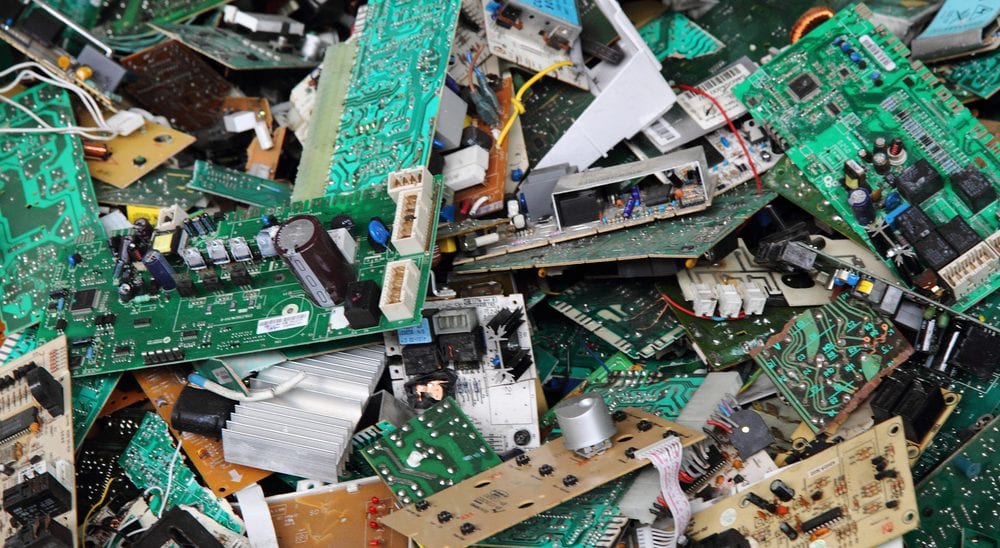New Blancco Study Reveals Three Quarters of End-of-Life Equipment Not Being Recycled

Enterprises Failing to Comply with Sustainability Policies. Research into corporate sustainability practices reveals the role global organizations play in damaging natural environments
New research launched by Blancco Technology Group, the industry standard in data erasure and mobile device diagnostics, explores the issues associated with the corporate sustainability practices that some of the world’s largest enterprises are following today. Blancco’s study, Poor sustainability practices – enterprises are overlooking the e-waste problem, produced in partnership with Coleman Parkes, reveals that only a quarter (24 percent) of end-of-life equipment is being sanitized and reused, despite 83 percent of organizations having a Corporate Social Responsibility (CSR) policy in place.
Despite the media conversation around climate change ramping up following global fires and record-high temperatures in Antarctica – and the topic taking centre stage at events like Davos – enterprises are not paying due attention to their contribution to this urgent, global issue. What’s more, Blancco’s study shows that enterprises’ current sustainability practices that form part of their CSR policies are not being employed. This is driving two main issues:
- A surge in e-Waste – Over a third (39 percent) of organizations physically destroy end-of-life IT equipment because they believe it is “better for the environment.” Physically destroying IT assets, when accompanied by a certificate of destruction and a full audit trail, is a valid data disposal option when hardware has reached end-of-life. However, if electronics are improperly disposed of and end up in landfill, the toxic or hazardous materials they contain, such as mercury and lead, can be harmful to the environment, and anyone who is exposed to them.
- Cyber landfill – There are more than 34 billion IT devices in the world today, generating 2.5 quintillion bytes of data daily. According to research from Hewlett Packard Enterprise, only about 6 percent of all data ever created is currently in use, which means 94 percent is sitting in a vast “cyber landfill.” Organizations around the world are therefore sitting on vast amounts of redundant, obsolete or trivial (ROT) data they don’t need and that are consuming valuable energy resources.
So why are so many organizations choosing to physically destroy equipment or keeping unnecessary data in active corporate environments? The answer lies in three major areas.
In addition to a lack of education, with organizations believing that physically destroying unfunctional or end-of-life equipment is “better for the environment”, the study highlights a clear lack of ownership and communication. Dealing with end-of-life equipment is part of the majority of organizations’ CSR policy (91 percent) but this isn’t being communicated or properly enacted across the business.
The robustness and lack of regulations globally also plays a critical role. In the U.S. alone, 22 states don’t have statewide e-waste laws. And despite the existence of the EU’s WEEE Directive and WEEE Regulations (2013), the U.K. missed its targets in 2018 and is one of the worst offenders for exporting waste to developing countries. Radical action and more robust regulations are needed.
“In today’s global climate, sustainability should be at the heart of every business’ strategy,” said Fredrik Forslund, Vice President, Enterprise and Cloud Erasure Solutions at Blancco. “Yet, it’s clear from our research that organizations globally are not doing enough. By managing retired IT assets in a more environmentally friendly way, putting them back into the circular economy and removing unnecessary data in active environments – should be best practice for all organizations. Furthermore, by actively looking at the data they hold as part of their data lifecycle management initiatives and regularly and securely removing the data they no longer need, organizations will not only reduce their energy consumption – but also remain compliant.”
For full analysis, read the Poor sustainability practices – enterprises are overlooking the e-waste problem report here: http://www.blancco.com/poor-sustainability-practices.
This report is the third in a three-part series of reports. The first report, “A False Sense of Security,” found that 36 percent of enterprises were taking significant risks with their end-of-life sanitization methods and processes (or lack thereof). It can be found here. The second “Data Sanitization: Policy vs. Reality,” found that more than half of the world’s largest enterprises fail to adequately communicate their data sanitization policies internally. It can be found here.
